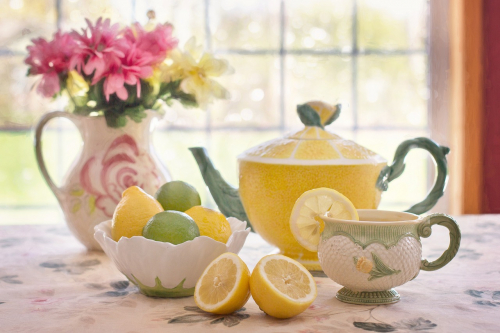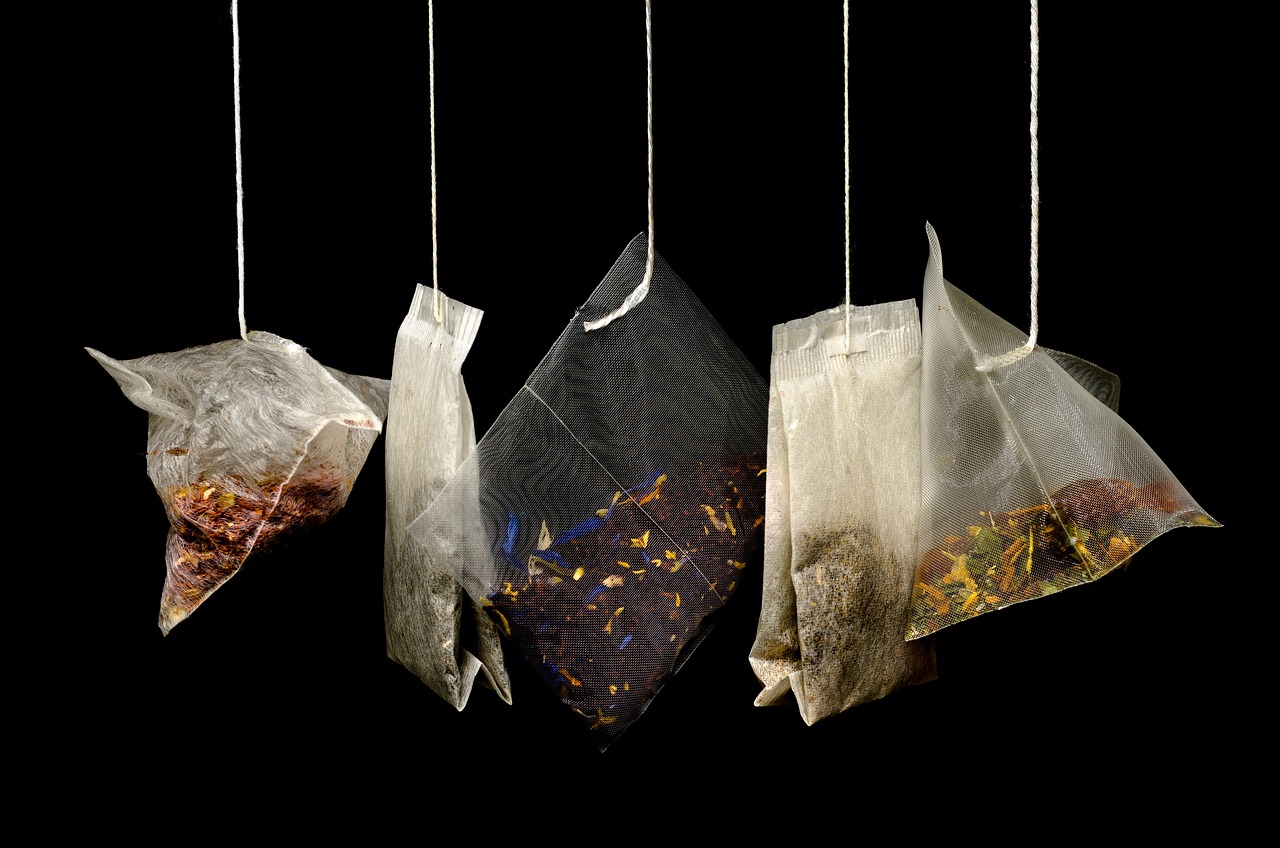Healthy Nurse, Healthy Nation™ Blog - Turn To Tea For An Assist With Hydration
Published
It's the perfect time to discover more about tea. If you already drink it on a regular basis — great! If you don’t, maybe you’ll decide to incorporate a cup or 2 into your daily routine.
Let’s spill the tea on tea. Whether you’re a current tea drinker or simply want to learn more about it, there’s a reason it’s one of the most popular beverages worldwide. But how is tea good for you and what kind of nutritional benefits does it provide? How much should you drink to reap the rewards? And most of all, does tea offer any hydration benefits?
Different Types of Tea
Tea leaves come from an evergreen tree that mostly grows in parts of Asia and Africa (except for herbal teas, which come from herbs, flowers, and fruits). The most popular types of tea include:
Keep in mind that tea flavors fluctuate depending on the specific brand, blend, and brewing method. The tea’s nutritional and health benefits can differ, too.
 Is Tea Good for You?
Is Tea Good for You?
Speaking of health benefits, what can you experience if you drink tea on a regular basis? Let’s see what the science says.
Surprisingly, tea doesn’t contain a ton of nutrients, but it does contain polyphenols — chemicals found in plants that have health-promoting properties. For example, you may have heard of flavanols, which are a type of polyphenols. Polyphenols act as antioxidants in the body. Antioxidants are important because they remove free radicals from the body's cells and lower oxidation-related damage.
Because of the high antioxidant content, evidence shows that some teas may help your immune system, reduce inflammation, and even protect you from cancer and heart disease. Green tea offers the most health advantages, and drinking it on a regular basis can provide benefits like:
Now, how much tea is safe to drink? Moderation is key. About 1-2 cups per day is a great place to start. Nutritionist Naomi Mead says that drinking up to 3-4 cups per day is OK for most individuals but not all (see the next paragraph).
If you’re worried about caffeine, the U.S. Food and Drug Administration says that 400 milligrams (mg) of caffeine per day should be a safe amount for the average person. For reference, a cup of black tea with milk contains an average of 47mg of caffeine. Green tea has slightly less caffeine than black tea, with about 33mg per cup. Consult your healthcare provider if you have any concerns about caffeine, especially if you are pregnant, sensitive to caffeine, or have specific health concerns.
Hydration Benefits of Tea
Since this month’s challenge is highlighting hydration, let’s explore whether tea can help keep you hydrated. Tea is 99% water, so it’s a fantastic beverage to choose if you want something more flavorful than plain water. Instead of reaching for juice or soda, reach for a cup of tea.
If you’re choosing tea instead of a sugary beverage, you’ll benefit from increased hydration because added sugars can contribute to dehydration. Sugar causes the cells in your body to transfer more water, increasing urination. That means when you sip on a soda or a sugary sports drink, your body doesn’t benefit from the fluids as much as it would with tea.
Some types of tea, like herbal teas and certain varieties of green and black tea, contain electrolytes like potassium, sodium, and magnesium. These electrolytes help maintain the body's fluid balance and aid in hydration.
Keep in mind that since caffeine has a diuretic effect (which can decrease hydration), teas that don’t contain caffeine will hydrate you the most. For the best hydration benefits from tea, choose caffeine-free herbal teas like chamomile, mint, or hibiscus.
Pour Yourself a Cup of Tea
As you can see, tea can be an option for a healthy, hydrating beverage. Not only is it a great liquid to add more flavor and antioxidants into your diet — it’s another option to give your body the hydration it needs.
Many of our nurse spotlights drink tea as part of their self-care routines. Get inspiration from nurses like Pamela Cipriano, PhD, RN, NEA-BC, FAAN, and Renae Schumann, PhD, RN, CNE.
Updated 5/6/25

Not a member of Healthy Nurse, Healthy Nation (HNHN) yet? Join today!
Sign up for our monthly challenges!
Different Types of Tea
Tea leaves come from an evergreen tree that mostly grows in parts of Asia and Africa (except for herbal teas, which come from herbs, flowers, and fruits). The most popular types of tea include:
- Black tea: With a robust and full-bodied flavor, many people drink it with milk and sugar. Black tea has a higher caffeine content compared to other teas, so it’s often used for increasing energy.
- Green tea: Known for its delicate flavor, green tea has a grassy and slightly bitter taste.
- Herbal tea: Made from a variety of herbs, flowers, and fruits, popular herbal teas include peppermint, chamomile, and hibiscus. Each herbal tea has its own distinct flavor.
- Matcha tea: This tea has a unique, vibrant green color and a rich, savory flavor. It’s known for its higher caffeine content.
- Oolong tea: This tea has a variety of flavors, from floral and fruity to toasty and nutty, depending on the specific type.
- Rooibos tea: With a naturally sweet and earthy flavor and a hint of nuttiness, this tea is caffeine-free and rich in antioxidants.
- White tea: It has a subtle and delicate flavor with hints of sweetness, and it’s considered the least processed type of tea.
Keep in mind that tea flavors fluctuate depending on the specific brand, blend, and brewing method. The tea’s nutritional and health benefits can differ, too.
 Is Tea Good for You?
Is Tea Good for You?Speaking of health benefits, what can you experience if you drink tea on a regular basis? Let’s see what the science says.
Surprisingly, tea doesn’t contain a ton of nutrients, but it does contain polyphenols — chemicals found in plants that have health-promoting properties. For example, you may have heard of flavanols, which are a type of polyphenols. Polyphenols act as antioxidants in the body. Antioxidants are important because they remove free radicals from the body's cells and lower oxidation-related damage.
Because of the high antioxidant content, evidence shows that some teas may help your immune system, reduce inflammation, and even protect you from cancer and heart disease. Green tea offers the most health advantages, and drinking it on a regular basis can provide benefits like:
- Cardiovascular health: Studies suggest that tea polyphenols — especially catechins found in green tea — can help lower blood pressure, improve your lipid profile by reducing LDL cholesterol and increasing HDL cholesterol, and help maintain healthy blood vessels.
- Weight management: The catechins and caffeine in green tea may increase thermogenesis (fat burning) and improve fat oxidation, research shows.
- Brain health: Regular tea consumption, especially green tea, is associated with improved cognitive function and a reduced risk of cognitive decline and neurodegenerative diseases like Alzheimer's and Parkinson's. This benefit is attributed to polyphenols, according to a meta-analysis.
- Preventing cancer: Research has found that epigallocatechin-3-gallate (EGCG) in green tea can stop cancer cells from growing and can even help kill them. The antioxidants in white tea also show promise with fighting various types of cancer.
Now, how much tea is safe to drink? Moderation is key. About 1-2 cups per day is a great place to start. Nutritionist Naomi Mead says that drinking up to 3-4 cups per day is OK for most individuals but not all (see the next paragraph).
If you’re worried about caffeine, the U.S. Food and Drug Administration says that 400 milligrams (mg) of caffeine per day should be a safe amount for the average person. For reference, a cup of black tea with milk contains an average of 47mg of caffeine. Green tea has slightly less caffeine than black tea, with about 33mg per cup. Consult your healthcare provider if you have any concerns about caffeine, especially if you are pregnant, sensitive to caffeine, or have specific health concerns.
Hydration Benefits of Tea
Since this month’s challenge is highlighting hydration, let’s explore whether tea can help keep you hydrated. Tea is 99% water, so it’s a fantastic beverage to choose if you want something more flavorful than plain water. Instead of reaching for juice or soda, reach for a cup of tea.
If you’re choosing tea instead of a sugary beverage, you’ll benefit from increased hydration because added sugars can contribute to dehydration. Sugar causes the cells in your body to transfer more water, increasing urination. That means when you sip on a soda or a sugary sports drink, your body doesn’t benefit from the fluids as much as it would with tea.
Some types of tea, like herbal teas and certain varieties of green and black tea, contain electrolytes like potassium, sodium, and magnesium. These electrolytes help maintain the body's fluid balance and aid in hydration.
Keep in mind that since caffeine has a diuretic effect (which can decrease hydration), teas that don’t contain caffeine will hydrate you the most. For the best hydration benefits from tea, choose caffeine-free herbal teas like chamomile, mint, or hibiscus.
Pour Yourself a Cup of Tea
As you can see, tea can be an option for a healthy, hydrating beverage. Not only is it a great liquid to add more flavor and antioxidants into your diet — it’s another option to give your body the hydration it needs.
Many of our nurse spotlights drink tea as part of their self-care routines. Get inspiration from nurses like Pamela Cipriano, PhD, RN, NEA-BC, FAAN, and Renae Schumann, PhD, RN, CNE.
Updated 5/6/25

Not a member of Healthy Nurse, Healthy Nation (HNHN) yet? Join today!
Sign up for our monthly challenges!
Blog Nutrition
06/27/2023 11:59am CDT



Post a Comment or Question
My husband is from England and teas are a staple in our house